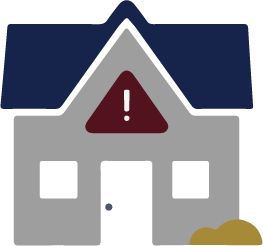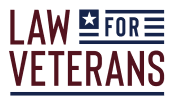The Ins and Outs of VA Home Loans
What is a VA Home Loan?
A may provide better financing terms for service members and their family. VA Home Loans are made through private lenders such as banks, loan associations, or even mortgage companies. If the loan is approved by the lender, the VA guarantees a portion of the loan, allowing the lender to give the service member a better rate.
VA Home Loans to buy, build, repair, retain, or adapt a service member’s home.
What are the advantages of a VA Home Loan?
VA Home Loans differ case-to-case, but they that non-military mortgages do not have.
Will I have to pay a VA funding fee?
Service members, veterans, or spouses who meet the following do not have to pay a VA funding fee:
- Receiving VA compensation for a service-connected disability, or
- Eligible to receive VA compensation for a service-connected disability, but they are getting retirement or active duty pay instead, or
- The surviving spouse of a Veteran who died in service or from a service-connected disability, or who was totally disabled, and they are receiving Dependency and Indemnity Compensation (DIC), or
- A service member with a disability rating, before being discharged and before the loan closing date, saying they are eligible to get compensation because of a disability claim, or
- A service member on active duty who, before or on the loan closing date, received the Purple Heart.
Who is eligible for a VA Home Loan?

VA Home Loans are available to eligible members of the military community such as service members, veterans, members of the National Guard and Reserves, and military spouses. Any service member that has been dishonorable discharged may not receive the VA Home Loan benefit. To find out more about upgrading a discharge status, visit Veterans’ Consortium Pro Bono Discharge Upgrade Program
Those eligible will get a Certificate of Eligibility (COE) to show their lender. This proves that they qualify based on their
What VA Home Loans are available?
See More
See More
Can I use my VA Home Loan benefit more than once?
Eligible members of the military community may use their VA benefit more than once if they . An entitlement is the amount the VA will pay back the lender in case the service member can no longer pay for the house. Typically, the VA attempts to make entitlements that cover 25% of a loan.
If a service member already has a VA loan, an entitlement amount is provided on their COE which is how much the VA will guarantee to the lender. This entitlement is being used until the loan is paid back.
To restore entitlement, one of the following must be true:
- The home was sold, and the prior loan repaid in full,
- A qualified veteran agreed to take over the loan, or
- The prior loan has been paid in full, but the home bought with that loan has not been sold (this can only be done once).
To request an entitlement restoration, a copy of a Request for a Certificate of Eligibility needs to be completed and sent to the VA regional loan center of the service member’s state.
Are there any lending limits for VA Home Loans?
There may be lending limits depending on how much the service member or veteran is eligible for a VA loan entitlement. The entitlement amount will vary depending on the cost of homes of an area.
Lending limits are tied to the loan entitlement amount a service member receives, meaning that the more entitlement a service member is eligible for, the more money they can borrow from a lender.
With full entitlement
Service members and veterans who have done one of the following are eligible for higher lending limits with VA loans:

- They have never used their home loan benefit,
- They have paid an earlier VA loan in full and sold the property (in this case, they would have their full entitlement restored), or
- They have used their home loan benefit but had a foreclosure or compromise claim (also called a short sale) and repaid the VA in full.
Not having a loan limit does not mean that a loan of any amount can be taken out. Lenders a service member or veteran’s credit history, income, and assets when deciding how large of a loan the service member can afford.
With partial entitlement
Service members who already used their entitlement over a VA Home Loan may be eligible for another loan, but they are given a smaller entitlement amount. By having a smaller entitlement amount this means that the loan limit should be smaller.
Service members or veterans may have partial entitlement if any are true:
- Have an active VA loan they are still paying back,
- Paid an earlier VA loan in full and still own the home,
- Refinanced their VA loan into a non-VA loan and still own the home,
- Had a compromise claim (or short sale) on an earlier VA loan and did not repay the VA in full,
- Had a deed in lieu of foreclosure on an earlier VA loan (this means they transferred their home’s title to the bank that holds the mortgage to avoid foreclosure), or
- Had a foreclosure on an earlier VA loan and did not repay the VA in full
While the VA may allow a service member to use their partial entitlement left for a second loan, a lender may approve a service member for a loan bigger than the lending limit connected to the entitlement given by the VA. In this case, the VA will guarantee only the amount of the partial entitlement.
Do I need a certain credit score to qualify?
Do all lenders offer a VA Home Loan?
Not all lenders have dedicated lending options for service members. To know which lenders do work with the VA ask them directly.

Who can I contact with questions about eligibility for a VA Home Loan?
Call the VA regional loan center for any questions about eligibility:
Regional loan centers may also be contacted directly.
Do I have to live in the home I purchase with a VA Home Loans?
Part of the requirements of a VA Home Loan is that the service member or veteran moves into the property within 60 days of when the loan closes.
Besides the exceptions listed above, the VA may waive the 60 days occupancy requirement if:
- The service member or veteran can show that they will live in the home on a specific date after the VA loan closes, and
- There is a specific event in the future that will make it possible for a member to live in the home on that date.
Typically, the VA does not give exceptions that are longer than 12 months after the loan closes.
What happens if I do not live in the home?
Lenders are responsible for making sure the borrower (service members) meets and continues to meet VA home loan requirements. The VA’s role is to guarantee the loan and to select who is eligible for that benefit by awarding COEs.

The VA does not look over occupancy requirements. Lenders are who determine what type of consequences may be taken. Since the VA’s primary role is to guarantee the loan, they may no longer support the service member by guaranteeing the loan to the lender.
Can I get a VA Home Loan to buy a home in a foreign country?
Can I build a home with a VA Home Loan?
Are there rules for what type of property I can buy?
What happens if I divorce while on a VA Home Loan?

It may be possible for the service member or veteran to of the house from the ex-spouse.
What can I do if I fall behind on my loan payments?

If the service member or veteran used a VA loan to buy the home, the VA can help with any delayed payments. Contact the VA at (877) 827-3702 to reach the nearest Loan Guarantee Office. The VA can provide a specialist to work with the lender and help explore all options to avoid foreclosure.
If a veteran or service member does not have a VA home loan, they may also call the same number for help.
